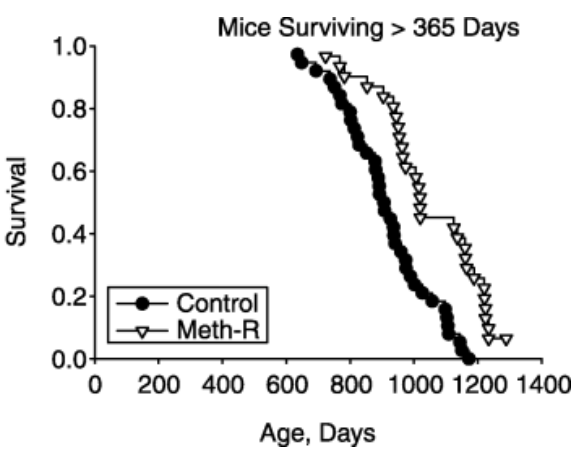If you’re referring to the june 2023 paper the monkey lifespan data is not published yet (as the monkeys haven’t died). The mouse health and longevity data was published with the monkey health data. The monkeys have seen improvements in health but we will have to wait to see if that translates into improved lifespan.
Probably the best video on Taurine. It’s a complete guide. Lots of data on dosing levels. My ideal dosage is 7 g, so I’ll be upping it to 7-8 g.
Also amino acids are best absorbed dissolved in liquid on an empty stomach.
Thanks @DeStrider. This was very helpful. I apparently need 3.5g/day. I recently went back up to 3g so I’ll probably increase it to 4g until I use up my 1g capsules since going above didn’t show any harm. I also need to do better about taking it on an empty stomach.
I would use taurine powder and mix it in a drink. BulkSupplements is inexpensive and high quality for amino acid powders. ConsumerLab has BulkSupplements Taurine powder as their top pick for Taurine powder.
Thank you! I figured I’d need to go with powdered so thanks for the brand recommendation. I’ve been using nutricost for years. Hopefully it’s not too horrible.
FWIW
From the posted video, oral dosing 81.3mg of taurine per Kg of body weight. Translated from the mouse study discussed.
More dosing information;
I like Nutricost as well. I thought originally they short-changed the amount you get, but it turns out I was wrong. Nutricost should be fine.
The video makes me wonder how much Taurine inhibits mTOR? And if the level of mTOR inhibition that the video presents is, in a meaningful way, additive to the inhibition we get from rapamycin? If that is the case, should I take less rapamycin to avoid sideeffects or mTOR rebound?
This forum expose me to new ideas and brings up new questions to think about. Thank you for sharing this information.
Another possibility is using collagen peptides for about 35% of your protein intake. This will reduce methionine and isoleucine intake by about 30%, and shouldn’t result in any amino acid deficiencies. Collagen is also unusually high in glycine. We don’t know what combined restriction of isoleucine and methionine does in otherwise normal diets, but on their own isoleucine and methionine restriction are among the most remarkable pro-lifespan interventions in rodents.
I wonder if methionine restriction might be promoting genomic stability, as methionine is the source of methyl groups for cytosine methylation, and increasing SAM (via the methionine increase) would increase the forward rate of this cytosine methylation rxn. This 5-methylated cytosine is unstable and can spontaneously convert to thymine, which can be correctly repaired to cytosine but also may result in G:C->A:T point mutation.
If this was the case you’d expect an age-dependent decrease in frequency of cytosine throughout the genome, but I can’t find any studies that looked at this. It’s known that global hypomethylation occurs in aging, so perhaps this is reflecting decreased frequency of cytosine with aging? There is one study which analyzed a fragment of mtDNA and found no point mutations in young mice, whereas 3/5 point mutations detected in aged mice were indeed G:C->A:T. They also didn’t detect A:T->G:C, but the downside of this study is the small dataset.
Methionine restriction also decreases methylation of mtDNA.
Homocysteine inhibits DNA methyltransferases, and as high homocysteine can indicate high methionine, it seems like this could be a mechanism ensuring genomic stability in the presence of methionine increases.
Another interesting observation is that mice have 2.8x higher circulating methionine than naked mole-rat and also live about 10x shorter on average. The naked mole-rat also displays greater SAM-dependent activation of cystathione beta-synthase than human or mouse, which prevents methionine surges by degrading homocysteine. The long-lived Ames dwarf mice also display enhanced activation of these homocysteine degradation pathways.
Thanks @jnorm very interesting. Do you have a sense for how one might want to think about lower or not lowering ones homocysteine via B12, B6 and B9 in this context?
Michael Lustgarten showed results suggesting that increasing his B12 and protein intake each independently resulted in about 20% reduction of homocysteine.
Personally I’m prioritizing interventional results and focusing on reducing methionine, since that gave 42% mean lifespan extension in male rats (multiple strains), and despite increase in relative food consumption.
The 42% increase was in the Fischer-344 strain and what’s crazy is that methionine restriction in this strain for 3 months led to 2.5x increase in homocysteine. Intermittent methionine restriction in mice produces 7x increase in circulating homocysteine during restriction period and produces pro-healthspan effects. Is that not suggestive that some of these associations of high homocysteine with aging or diseases like Alzheimer’s are being interpreted wrong (i.e reverse causation)?
Methionine restriction also extends maximal lifespan in mice, although it tends to hurt early-life survival.

Also interesting, S-adenosylhomocysteine (SAH), which mediates the DNA methyltransferase inhibition associated with homocysteine, extends lifespan in yeast and roundworms. S-adenosylhomocysteine hydrolysis is reversible, so increasing homocysteine should also increase SAH. These results again call into question the alleged toxicity of homocysteine, and as the authors suggest that SAH acts a methionine restriction mimetic, suggests that we should indeed be targeting methionine directly.
Then again, I wouldn’t overstate the results. A 42% median lifespan extension sounds huge but if we tested methione restriction in the ITP, I’m certain the results would be a lot more moderate (in the range of 5-15%).
Good point. That’s why the recent isoleucine restriction results are so exciting, since they used the same stock of mice as the ITP, it seems much more likely that the ITP could replicate them.
Yes, but they only showed it worked when the animals were started as very young adults (6 months), and only in males: it had little or no effect in females (7% median LS, short-lived controls) and while they didn’t do a lifespan study in older mice, the metabolic effects seemed to have disappeared at age 24 months of age, suggesting that starting Ile restriction later in life may not be effective in slowing aging.
Personally I believe you should keep methionine and homocysteine low by taking glycine to create glutathione which really helps with longevity. High glutathione levels is highly correlated to health and longevity.
In the ITP, extremely high doses of glycine led to only a very small effect on lifespan.
Yes, glycine by itself will not provide the best benefit. Here’s the equation for Glutathione (GSH)
1 unit glycine + 1 unit cysteine + 1 unit glutamine = 1 unit GSH
Your body produces enough glutamine, so it’s not a limiting factor. Glycine and Cysteine are the limiters.
So if I give you 100 extra units of glycine but no extra units of cysteine, you’re not going to improve the amount of GSH as BOTH glycine and cysteine are the limiting AA. Hence why a lot of people supplement with GLYNAC (Glycine + Cysteine).
But if you go back to your original speculation:
As ReppinMycin posted earlier in the thread, taking cysteine (but not taurine) negates the beneficial metabolic effects of methionine restriction (which is never just Met restriction, but Met + Cys restriction).
So if your idea is that glycine will benefit longevity by lowering Met (and again, glycine itself has very little effect at massive doses), then taking Cys will nullify any Met-lowering effect.
Yes, I’m aware there’s a lifespan study claiming that GlyNAC extends lifespan in rodents. The controls were laughably short-lived, so it’s a meaningless result for a typical human, let alone a middle-class person with typical genetics living in an OECD country.
Yes, if you take cysteine by itself, it’s not a good idea. If you want to boost glutathione you need to supplement glycine and cysteine to optimize glutathione production.
There’s also this study on GLYNAC with humans.
The aging hallmarks that improved are mitochondrial dysfunction, altered intercellular communication, nutrient sensing, loss of proteostasis, genomic instability, cellular senescence and stem cell fatigue.
I make sure I take more glycine than cysteine. I take about 11 g of Glycine and about 3.2 g of Cysteine plus 8 g of Taurine daily.
“Yes, I’m aware there’s a lifespan study claiming that GlyNAC extends lifespan in rodents. The controls were laughably short-lived”
Thank you for sharing the above. I have missed that the controls were short lived.
Do you have any idea, what the result would have been if the controls had a normal lifespan?
